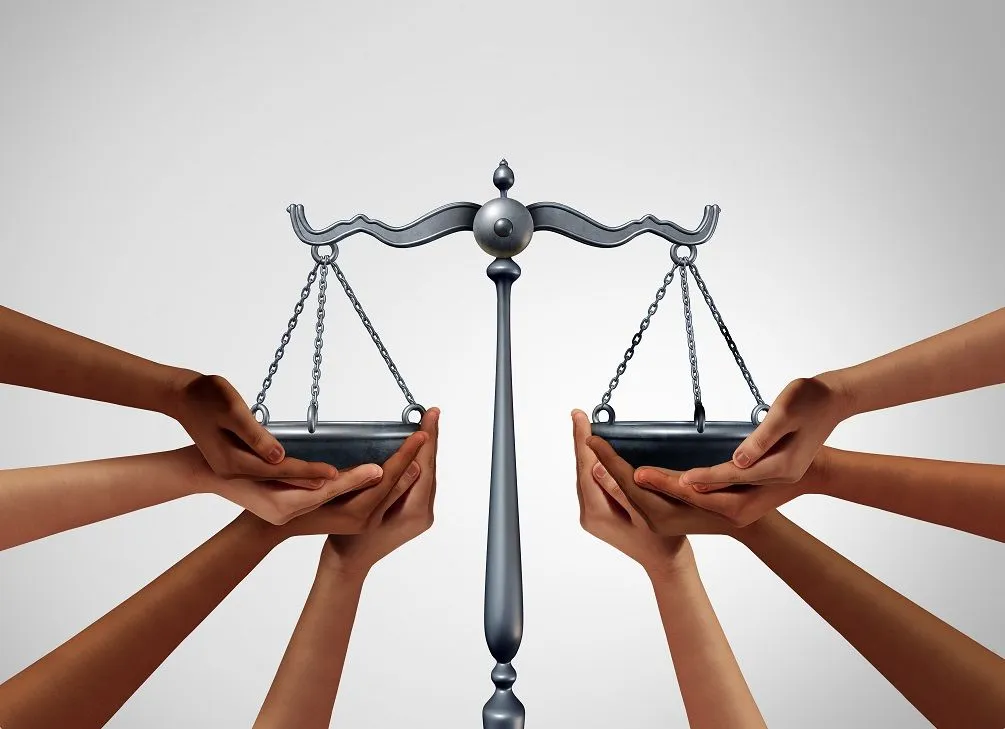The fight for social justice and equality
Social Justice: The fight for social justice and equality has gained momentum in recent years, with protests and activism around issues such as racial inequality, LGBTQ+ rights, and gender equality
Social justice is the concept that all individuals should be treated fairly and equally, regardless of their race, gender, sexuality, or socioeconomic status. It is the idea that everyone should have access to the same opportunities and resources and that society should work to eliminate systems of oppression and discrimination.
In recent years, social justice has become a major topic of concern and activism, with people around the world fighting for greater equality and fairness.

One of the most prominent areas of social justice activism in recent years has been racial inequality. The Black Lives Matter movement emerged in response to systemic racism and police brutality disproportionately affecting Black people in the United States and globally.
The movement has led to widespread protests and activism, as well as a greater awareness of the need for change. Organizations and individuals advocate for policies supporting racial justice, including ending mass incarceration, reforming policing, and addressing economic disparities.
Similarly, LGBTQ+ rights have been a major area of focus for social justice activists. Historically, LGBTQ+ individuals faced discrimination and marginalization. Some countries criminalize same-sex relationships, and LGBTQ+ people still lack adequate protection from violence and discrimination.
Activists are working to change laws and policies that discriminate against LGBTQ+ people. As well as promoting education and awareness around issues related to gender and sexuality.
Gender equality is another area of social justice activism that has gained momentum in recent years. Women have faced gender-based discrimination and violence, with the #MeToo movement drawing attention to issues like sexual harassment and assault.
Activists call for policies promoting gender equality, including equal pay. Improved access to reproductive healthcare, and increased representation of women in positions of power.
Social justice activism takes many forms, from grassroots organizing to advocacy and policy change. Activists use a variety of tactics to promote change, including protests, social media campaigns, and direct action.
Some address intersectionality, recognizing individuals facing multiple forms of oppression based on race, gender, sexuality, and other factors.
Despite the progress made, people continue to face an ongoing struggle for social justice. Many still face discrimination based on identity, and systemic oppression persists in various institutions and systems.
The fight for social justice requires sustained effort and ongoing commitment. As well as a willingness to listen to and learn from diverse perspectives and experiences.
One of the challenges of justice activism is the need to balance immediate action with long-term systemic change. Protests draw attention and demand change, but lasting progress often necessitates policy change and institutional reform.
Activists must build coalitions, engage in dialogue with policymakers and stakeholders, and advocate for systemic change across all levels of society.
Another challenge of social activism is the need to address issues related to power and privilege. Those in positions of power or privilege may not recognize their contributions to or benefit from systems of oppression.
Activists need to challenge power dynamics, build diverse alliances, and promote education and awareness of social justice issues.
Conclusion
Social justice activism has gained significant momentum in recent years. With people around the world fighting for greater equality and fairness. While progress has been made, much work remains to be done to address issues related to racial inequality,
LGBTQ+ rights, gender equality, and other forms of discrimination and oppression. Achieving social justice requires ongoing commitment, sustained effort, and openness to learning from diverse perspectives and experiences.
By working together and advocating for systemic change, we can create a more just and equitable world for all. 온라인카지노사이트